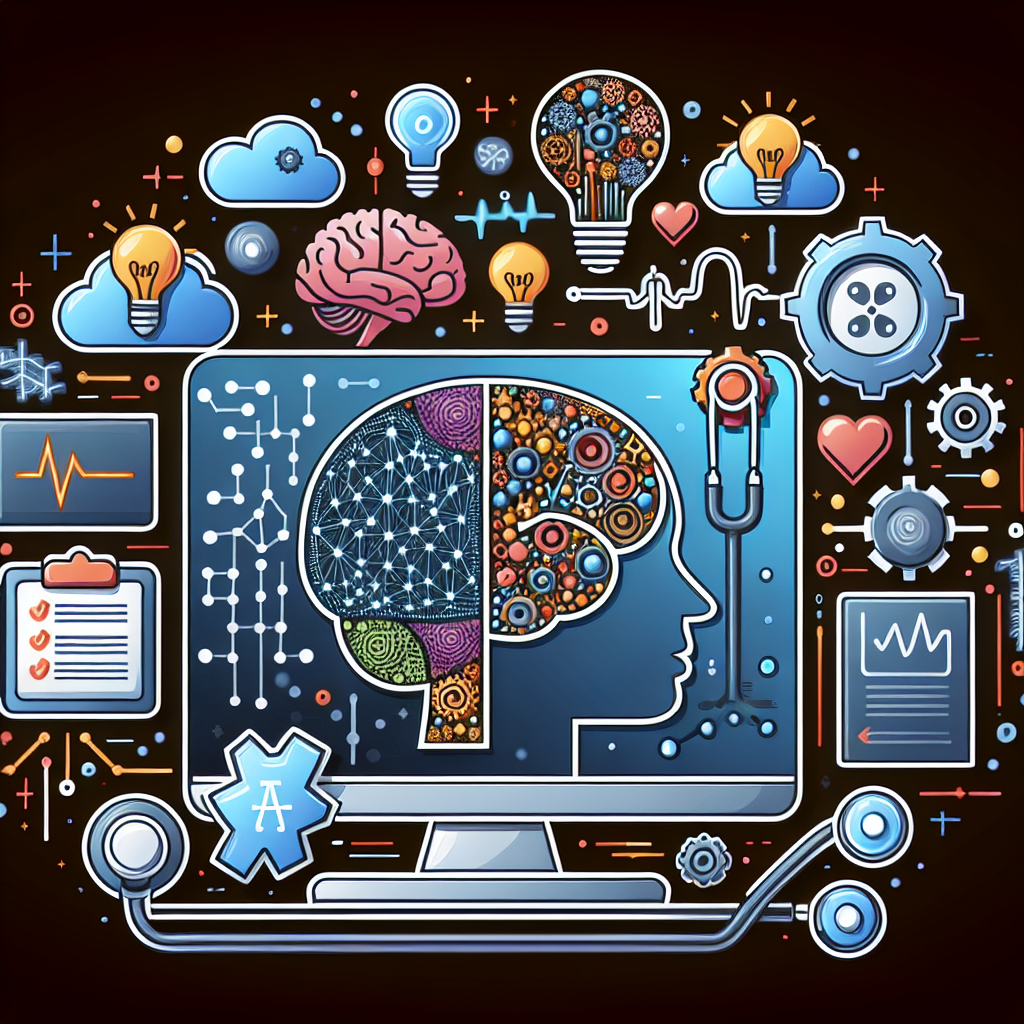Introduction
Artificial Intelligence (AI) automation has revolutionized many industries, including mental health services. From chatbots to algorithms that can detect patterns in behavior, AI has the potential to streamline and improve the delivery of mental health care. However, the impact of AI automation on mental health services is a complex and nuanced issue that raises important ethical and practical questions. In this article, we will explore the potential benefits and challenges of AI automation in mental health services, as well as the implications for patients and mental health professionals.
Benefits of AI Automation in Mental Health Services
1. Accessibility: One of the key benefits of AI automation in mental health services is increased accessibility. Many individuals face barriers to accessing mental health care, such as long wait times, geographical constraints, and stigma. AI automation can help bridge these gaps by providing round-the-clock support through chatbots and online platforms. This can be especially beneficial for individuals in rural or underserved areas who may not have access to traditional mental health services.
2. Personalization: AI automation can also improve the personalization of mental health care. By analyzing data from patient interactions, AI algorithms can tailor treatment plans to individual needs and preferences. This can lead to more effective and efficient care, as well as better outcomes for patients.
3. Early Intervention: AI automation can help identify mental health issues early on by analyzing patterns in behavior and speech. For example, AI algorithms can detect changes in mood or language that may indicate the onset of a mental health crisis. This early intervention can prevent more serious problems from developing and help individuals get the support they need sooner.
Challenges of AI Automation in Mental Health Services
1. Lack of Human Connection: One of the main challenges of AI automation in mental health services is the potential lack of human connection. While AI algorithms can provide valuable support and information, they cannot replace the empathy and understanding that comes from human interaction. This may be particularly important in mental health care, where building a strong therapeutic relationship is crucial for effective treatment.
2. Privacy and Data Security: Another concern with AI automation in mental health services is the privacy and security of patient data. AI algorithms rely on large amounts of data to operate effectively, but this data must be handled with care to protect patient confidentiality. There is also the risk of data breaches and misuse, which could have serious consequences for patients and mental health professionals.
3. Bias and Inaccuracy: AI algorithms are only as good as the data they are trained on, which can lead to bias and inaccuracy. For example, if an AI algorithm is trained on data that is not representative of the population it serves, it may produce biased or incorrect recommendations. This can have serious implications for patient care and outcomes, as well as perpetuate inequalities in mental health services.
Implications for Patients and Mental Health Professionals
For patients, the impact of AI automation on mental health services can be both positive and negative. On the one hand, AI automation can improve access to care, personalize treatment plans, and provide early intervention for mental health issues. However, patients may also feel a lack of human connection and privacy concerns when interacting with AI algorithms. It is important for patients to be informed about the use of AI in mental health services and to advocate for their own needs and preferences.
For mental health professionals, AI automation presents both opportunities and challenges. AI algorithms can support clinicians in diagnosing and treating mental health conditions, freeing up time for more personalized care. However, mental health professionals must also be vigilant about the limitations and biases of AI technology, as well as the ethical implications of using AI in clinical practice. It is crucial for mental health professionals to receive training and support in using AI automation responsibly and ethically.
FAQs
1. How can AI automation improve access to mental health care?
AI automation can improve access to mental health care by providing round-the-clock support through chatbots and online platforms. This can help individuals in rural or underserved areas who may not have access to traditional mental health services.
2. What are the potential risks of using AI in mental health services?
Some potential risks of using AI in mental health services include a lack of human connection, privacy and data security concerns, and bias and inaccuracy in AI algorithms. It is important for patients and mental health professionals to be aware of these risks and advocate for responsible and ethical use of AI technology.
3. How can mental health professionals ensure the responsible use of AI in clinical practice?
Mental health professionals can ensure the responsible use of AI in clinical practice by being vigilant about the limitations and biases of AI technology, as well as the ethical implications of using AI in patient care. It is important for mental health professionals to receive training and support in using AI automation responsibly and ethically.
Conclusion
AI automation has the potential to revolutionize mental health services by improving access to care, personalizing treatment plans, and providing early intervention for mental health issues. However, the impact of AI automation on mental health services is a complex and nuanced issue that raises important ethical and practical questions. It is crucial for patients and mental health professionals to be informed about the benefits and challenges of AI technology and to advocate for responsible and ethical use in clinical practice. By working together, we can harness the power of AI automation to improve mental health care for all.

